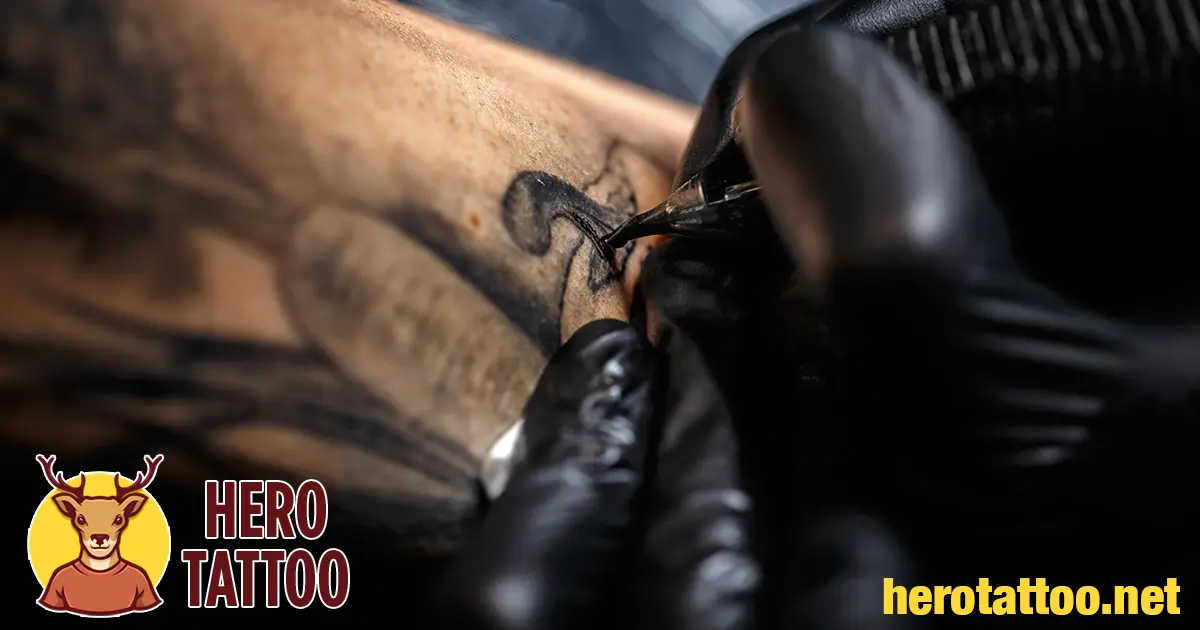Tattoo aftercare is, without a doubt, the most critical step in achieving a healing and healthy tattoo. Although some individuals go beyond with some aftercare activities, such as tattoo moisturizing, this is not recommended because improper aftercare, or rather a lack thereof, can cause things to go wrong with the tattoo.
Keep in mind that while it is vital to keep the tattoo wet and moisturized, going overboard might be counterproductive and result in some healing complications.
For those of you who are guilty of over-moisturizing your tattoo, you have arrived at the correct location. Following that, we will talk about tattoo moisturizing, the dangers of overdoing it, and how to remedy the problems that might arise due to over-moisturizing. Let’s get this party started!
Tattoo Moisturizing: A Quick Look at the Facts
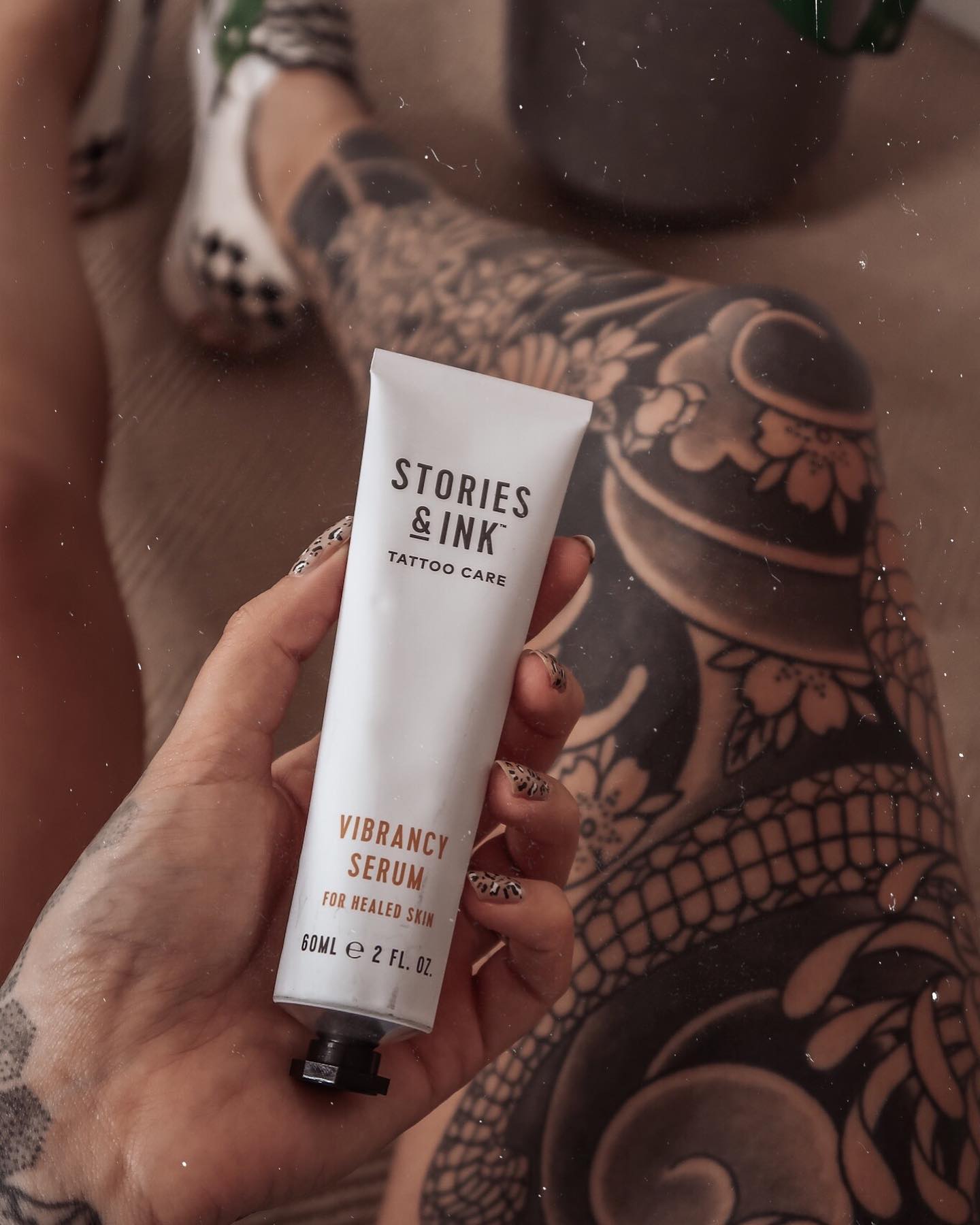
What is the purpose of moisturizing a tattoo?
When you receive a new tattoo, it will take between 24 and 48 hours for the ink and blood to stop leaking out and for the wound to begin the process of healing and sealing. That is when your aftercare regimen takes on a whole new level of importance, with a focus on ensuring that the tattoo heals properly. It is critical to apply lotion and ointment to the tattoo during the healing phase to keep the tattoo hydrated and moisturized as much as possible.
There are various reasons why moisturizing should be included in your aftercare practice. Applications of lotions and ointments, for example, can help.
- Itching from a tattoo can be relieved.
- Keep your tattoo from flaking and scabbing by following these instructions.
- Prevent tattoo peeling by following these steps.
- Maintain the hydration and health of your skin.
- It is essential not to allow the tattooed region to dry out.
- Prevent your tattoo from breaking.
- It increases the production of new skin cells and the healing of wounds.
If you do not moisturize your tattoo, you run the danger of it peeling off too much and ruining the design you have created. Furthermore, the tattoo will become excruciatingly uncomfortable, and you may even find yourself scratching the region, resulting in other complications such as infection or scarring. Not to mention the drying out of the tattoo, which can result in cracking, peeling, and severe scabbing while the tattoo heals.
What is the best frequency for moisturizing your tattoo?
Professional tattoo artists always recommend that their clients moisturize their tattoos once or twice a day to keep them looking fresh. The ideal approach to moisturizing a tattoo is to do it twice a day, in the morning and at night. To prevent the tattoo from drying out after showering, it is also vital to apply moisturizer or ointment immediately afterwards.
How Much of a Moisturizer Should You Apply?
A thin coating of a fragrance-free, organic lotion or ointment should be applied over the tattoo to avoid irritation. Many people appear to slather on copious amounts of lotion to their tattoos, assuming that this will better moisturize and nourish the tattoo. However, over-moisturizing a tattoo due to such an application is undesirable.
What Are the Consequences of Excessive Tattoo Moisturization?
By applying thicker layers of lotion or ointment multiple times a day (or every hour or two, as some people do), you run the danger of over-moisturizing a tattoo, which can lead to infection. Using excessive moisture on a tattoo might result in the following complications:
- Because of the excessive moisture, the tattoo will be unable to dry and heal properly.
- Bacterial and germ development can flourish in an atmosphere with an excess of moisture.
- Excessive moisturizing might cause tattoo irritation and infection if done incorrectly.
- As a result of excessive moisture, pores can get blocked since the moisturizer hinders the skin from breathing.
- Tattooed skin can break out if an excessive amount of moisture is present.
Make sure to follow the moisturizing guidelines we discussed earlier to avoid these problems. Be careful not to over-moisturize your tattoo since this might cause it to bleed.
Those concerned about over-moisturizing their tattoos leave them dry, which leads to excessive scabbing and tattoo dryness, among other problems. Stay in the center and apply a small layer of lotion or ointment twice each day to keep your skin looking and feeling good.
What is the best way to fix a tattoo that has been over-moisturized?
If you have accidentally put too much lotion or ointment on a tattoo, follow these steps to cure it:
- It is important to wipe away any excess lotion or ointment with a paper towel or a soft, cotton towel; remember to be careful and avoid pushing the skin or swiping hastily and aggressively across the tattoo with the cloth after application.
- If it takes too long, you may use a fan on the lowest setting to blast warm air into the tattoo to speed things up. Allow the tattoo to dry and soak up the leftover lotion. However, if you get the tattoo too close to the fan, it might be potentially hazardous to your health. Make sure to keep the fan between 30cm and 50cm away from the tattoo when using it.
- For the rest of the day, refrain from using any lotion. Allow time for the tattoo to sink in and the lotions that have previously been applied to work their magic. You can, however, put the lightest possible coating of lotion on the tattoo to prevent it from becoming too dry if you decide to wash it later.
- After that, continue to use the lotion/ointment twice a day, preferably in the morning and at night, especially after having a shower.
What Are The Risks Of Lack of Tattoo Moisturizing?
In the same way that it is simple to over-moisturize a tattoo, it might be even easier to under-moisturize it. Some of the dangers of not getting enough moisture and moisturizing are as follows:
- The tattoo is drying out as a result of the drying process.
- The tattoo is beginning to crack.
- Scabs do not fall off the body.
- Excessive itching
- Peeling a tattoo incorrectly
- In general, tattoo healing complications are a problem (prolonged healing time).
In one way or another, any claimed tattoo aftercare that goes from one extreme to another will interfere with the healing process of your tattoo in some manner.
Maintain strict compliance with your tattoo artist’s aftercare regimen guidelines at all times, and refrain from going overboard with your views about how often, or how little, your tattoo should be moisturized. Of course, you should pay attention to your body’s signals, but over-or under-moisturizing will do nothing to benefit you or your tattoo in the long run.
Another Frequently Asked Questions about Tattoo Moisturizing
What kind of moisturizer should I use for my tattoo?
We recommend that you always use lotions and ointments that are tattoo-friendly, fragrance-free, non-irritating, and organic. Some of our favorite tattoo moisturizers include the following:
- A mild composition is used to create Bepanthen Diaper Care Ointment, which is designed to comfort a tattoo throughout the healing process. Because it is an antiseptic cream, the ointment effectively alleviates discomfort and irritation. Professional tattoo artists advocate using Bepanthene ointment on the tattooed area to speed up the healing process and to feed the skin with vitamin B5.
- Brooklyn Grooming Tattoo Balm: This balm was mainly developed for tattoo aftercare, and it was created by tattoo artists who have years of experience in the industry. The balm has a potent, regenerating ingredient that can aid in the speedy recovery of wounds. Natural components such as shea butter, hemp oil, sesame seed oil, and organic vitamin E are found in this product. The balm is a great choice. It is organic, odorless, and vegan.
- It is recommended that you use Aveeno Sheer Moisture Daily Moisturizing Lotion to increase the hydration of your tattooed skin.
It is particularly effective when the tattoo is dry and under-hydrated. Glycerin, caprylyl glycol, and citric acid are all included in the lotion’s recipe, which keeps the skin moisturized for up to 24 hours. It also has no aroma and is excellent for people with sensitive skin.
Is It Necessary to Moisturize My Tattoo Once It Has Fully Healed?
Even after your tattoo has fully healed, you need to regularly hydrate it to ensure that it remains alive and attractive for years to come. In addition to assisting with the healing process, an aftercare program should be followed. Even though your tattoo has healed, you need to continue to take good care of it.
Consequently, use a high-quality, fragrance-free, non-irritating lotion or ointment to protect your skin, and do not even consider going somewhere without wearing adequate sunscreen. This will ensure that your tattoo remains in good condition for many years. Furthermore, appropriate tattoo care will avoid premature tattoo fading and other problems.
When it comes to moisturizing my tattoo, can I use Vaseline?
The common misconception is that Vaseline has moisturizing properties. This is not true at all. It is made of petroleum jelly, which is non-absorbent and does not penetrate the skin. Instead, it adheres to the skin’s surface, acting as a protective barrier.
In contrast, when a tattoo is healing, Vaseline can cause the skin to become excessively wet, resulting in infection. Because the protective layer prevents the tattoo from breathing, it does not dry properly, and the healing process takes substantially longer to complete than it would otherwise take.
In order to avoid irritating a healing tattoo, it is only allowed to apply the smallest coating of vaseline to it when you are showering. A tiny layer of Vaseline will shield the tattoo from the water and keep it safe and dry for the duration of the session. However, once you have finished bathing, make sure to remove the Vaseline, wash the tattoo, and moisturize with a light layer of lotion before drying it thoroughly.
Once the tattoo has healed completely, you can use Vaseline as a type of tattoo care product. But avoid overdoing it until it is completely healed again. Vaseline has the potential to block pores and cause skin outbreaks.
Concluding Remarks
Some individuals believe that you can never over-moisturize a tattoo because it will fade. Unfortunately, they are entirely wrong. A tattoo is susceptible to becoming overhydrated, resulting in major healing complications. To avoid those problems, stick to the aftercare routine that your tattoo artist prescribed, and avoid adding any additional steps to your tattoo care regimen without first seeing a professional tattooist or another specialist.
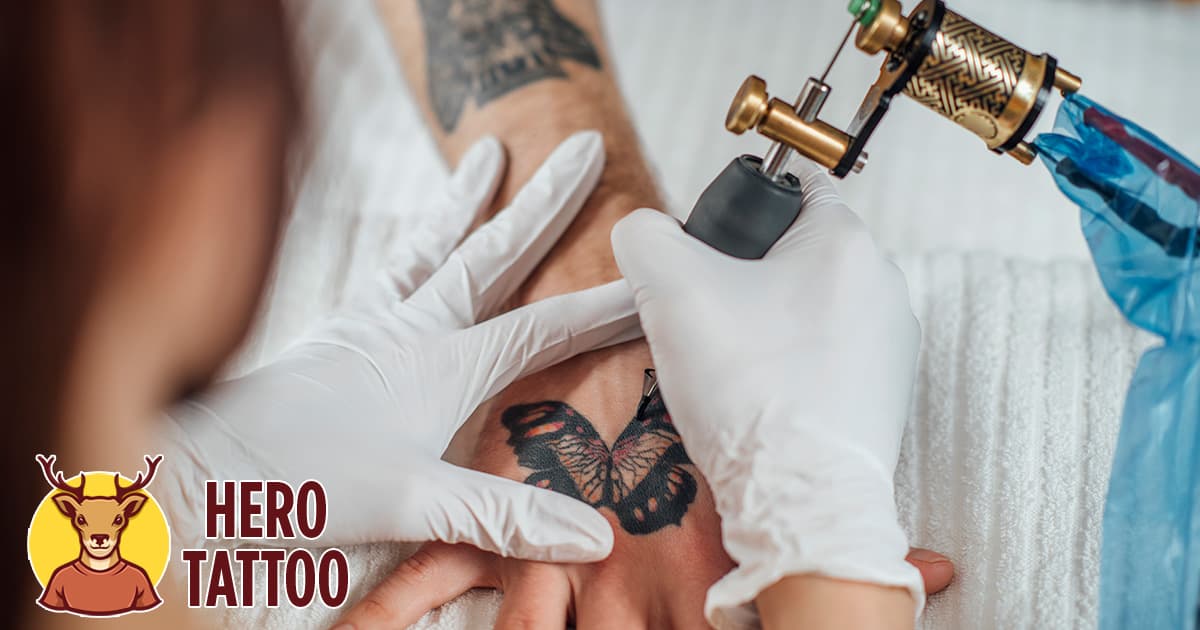

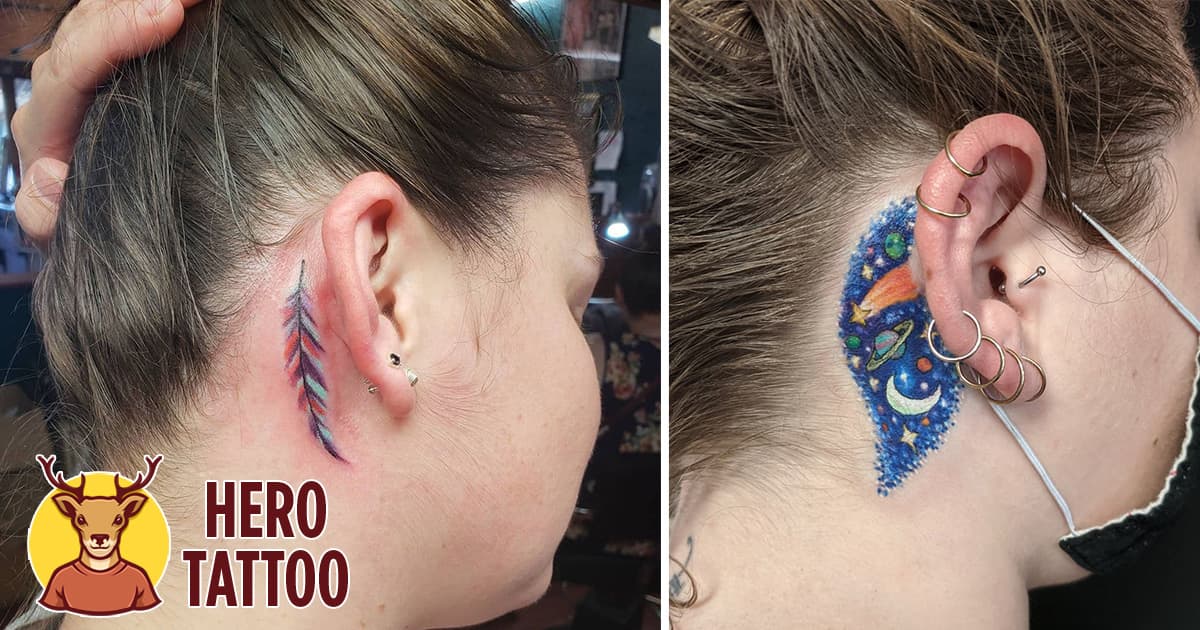
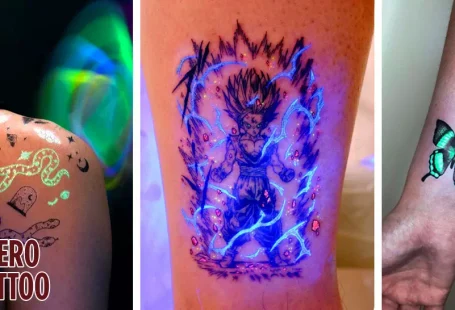
![The 99 Best Seahorse Tattoo Designs Ideas [2022] 9 seohorse tattoo design cover](https://herotattoo.net/wp-content/uploads/2022/05/seohorse-tattoo-design-cover.webp)
